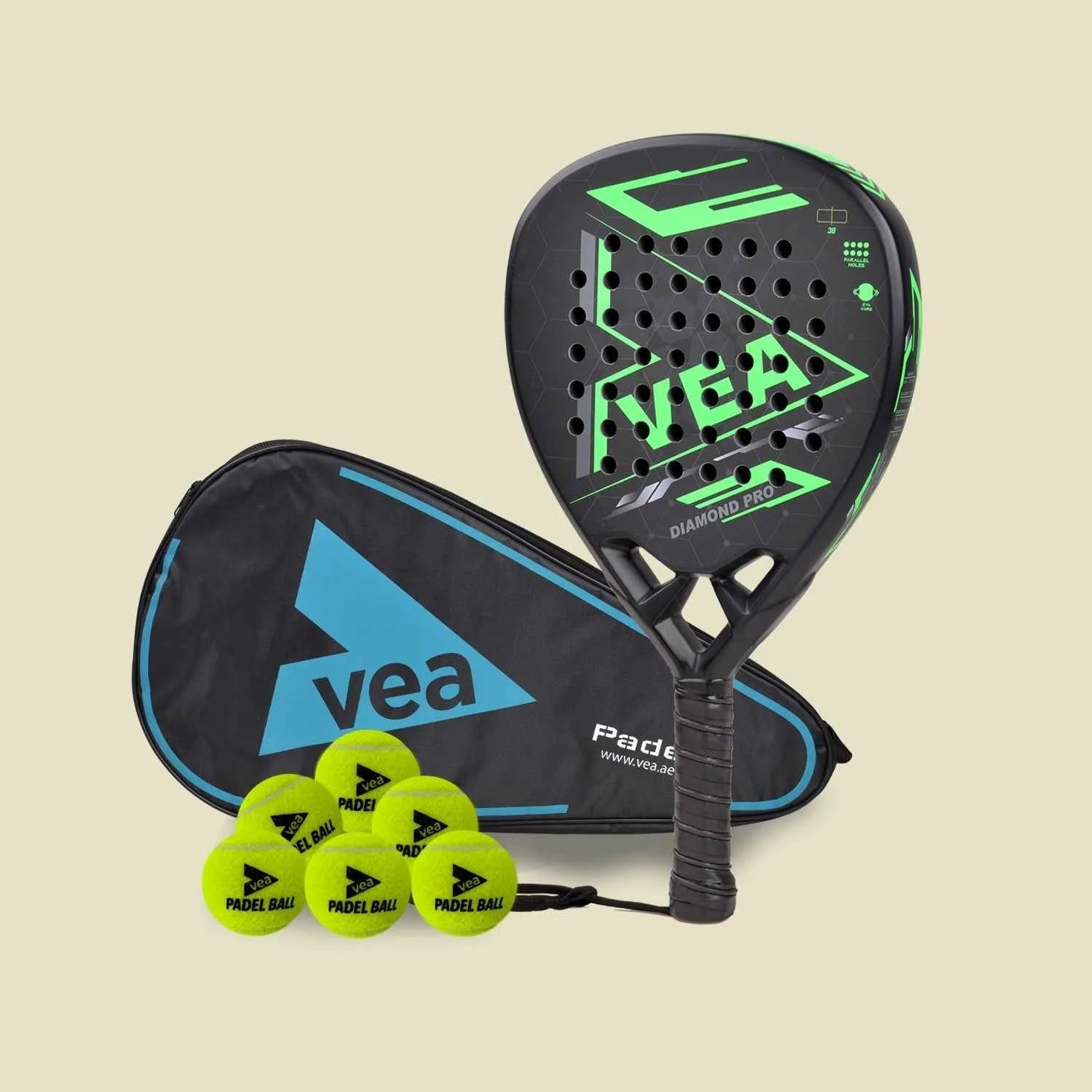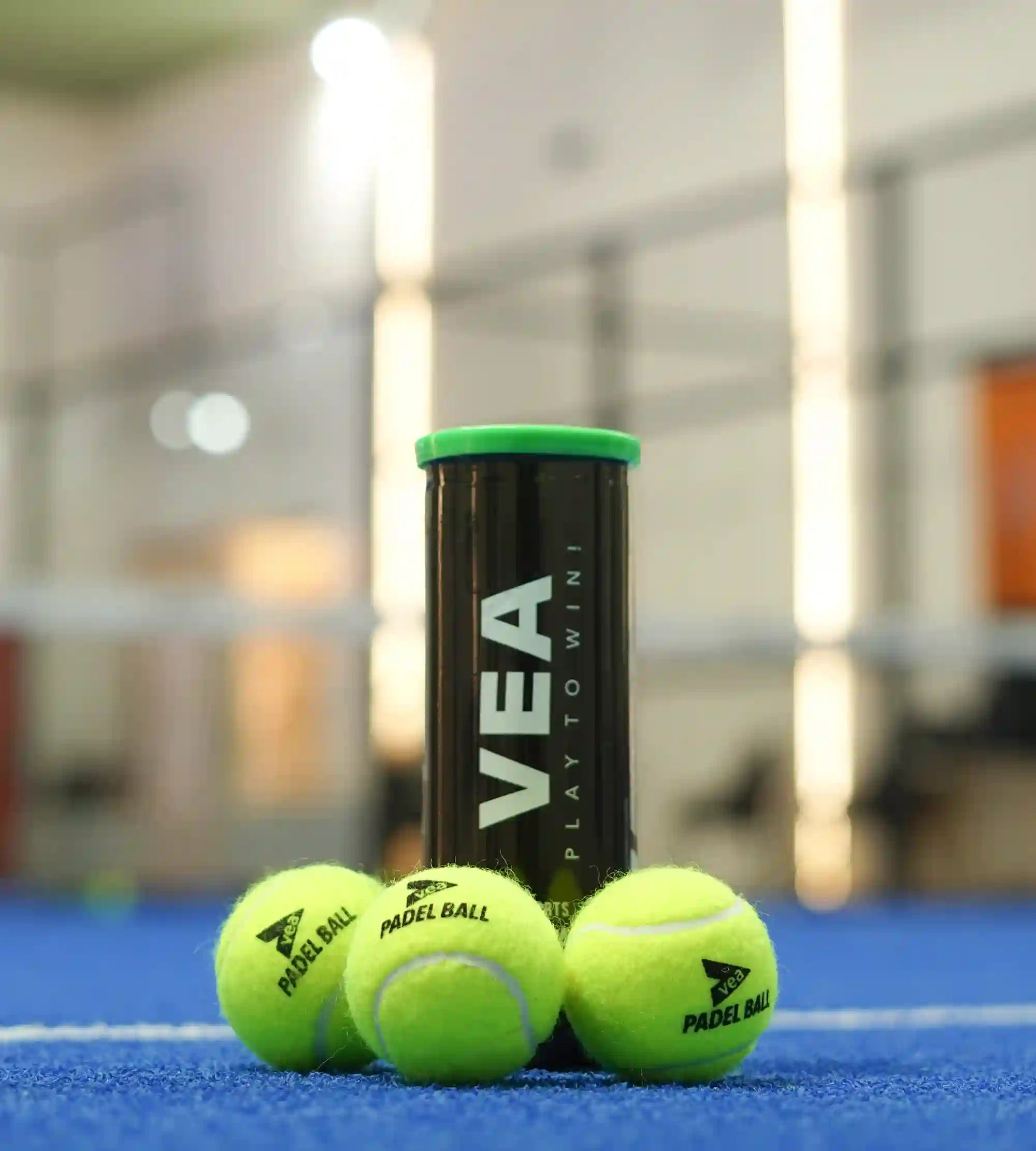Choosing the right padel racket can completely change your game — boosting your performance, comfort, and enjoyment on the court.
Whether you’re a beginner or an experienced player, the shape, weight, balance, and materials of your racket all matter.
Whether you’re a beginner or an experienced player, the shape, weight, balance, and materials of your racket all matter.
In this guide, we’ll break down diamond-, teardrop-, and round-shaped rackets, explain who they’re best for, and share tips to help you make the right choice.
If you’re ready to find your perfect racket, explore the VEA Padel Racket Collection for professional-quality options.
If you’re ready to find your perfect racket, explore the VEA Padel Racket Collection for professional-quality options.
1. Understanding Padel Racket Shapes
Padel rackets come in three main shapes, each offering different advantages:
| Diamond | Advanced power hitters | ★★★★★ | ★★☆☆☆ | Small |
| Teardrop | All-round players | ★★★★☆ | ★★★★☆ | Medium |
| Round | Beginners, control players | ★★☆☆☆ | ★★★★★ | Large |
Diamond-Shaped Rackets
- Best for: Aggressive players who want explosive shots.
- Advantages:
-
- High balance point for maximum power.
- Ideal for smashes and offensive play.
- Drawbacks:
-
- Smaller sweet spot — requires precision.
- A heavier feel may cause fatigue.
- Shop example: VEA Diamond Pro Padel Racket.
Teardrop-Shaped Rackets
- Best for: Versatile players who want both power and control.
- Advantages:
-
- Balanced weight for adaptable gameplay.
- Larger sweet spot than diamond rackets.
- Drawbacks:
-
- Less extreme in both power and control.
- Popular with: Intermediate players improving overall skills.
Round-Shaped Rackets
- Best suited for: Beginners and players who prioritise control.
- Advantages:
-
- Large sweet spot for more forgiveness.
- Lighter and easier to manoeuvre.
- Drawbacks:
-
- Less power compared to diamond/teardrop.
- Great for: defensive strategies and consistent returns.
2. Other Factors to Consider
Choosing the right shape is only the first step. You should also look at:
- Weight:
-
- Lighter (355–365 g): Easier control, better for beginners.
- Heavier (370–385 g): More power, but harder to manoeuvre.
- Balance:
-
- Head-heavy = More power.
- Headlight = More control.
- Even balance = Best of both.
- Material:
-
- Carbon fibre = strong, stiff, powerful.
- Fibreglass = Softer, more forgiving.
- Hybrid = Balanced performance.
3. Common Mistakes to Avoid
- Buying based on looks instead of features.
- Choosing a racket that is too advanced for your skill level.
- Ignoring weight and balance comfort.
- Using low-quality materials that wear out quickly.
4. Padel Racket Care Tips
- Store in a racket bag, away from heat and moisture.
- Wipe down after each game.
- Check the frame and strings for damage regularly.
5. FAQs – Choosing the Right Padel Racket
Q: What’s the best padel racket for beginners?
A: A round-shaped racket is easiest to control and most forgiving.
A: A round-shaped racket is easiest to control and most forgiving.
Q: Which shape offers the most power?
A: Diamond-shaped rackets generate the most power but require skill.
A: Diamond-shaped rackets generate the most power but require skill.
Q: How often should I replace my paddle racket?
A: For frequent players, every 12–18 months is typical.
A: For frequent players, every 12–18 months is typical.
6. Conclusion
The right padel racket can level up your game instantly.
If you’re just starting, choose a round shape for control. If you’re versatile, go teardrop. If you’re a power hitter, pick diamond.
If you’re just starting, choose a round shape for control. If you’re versatile, go teardrop. If you’re a power hitter, pick diamond.






